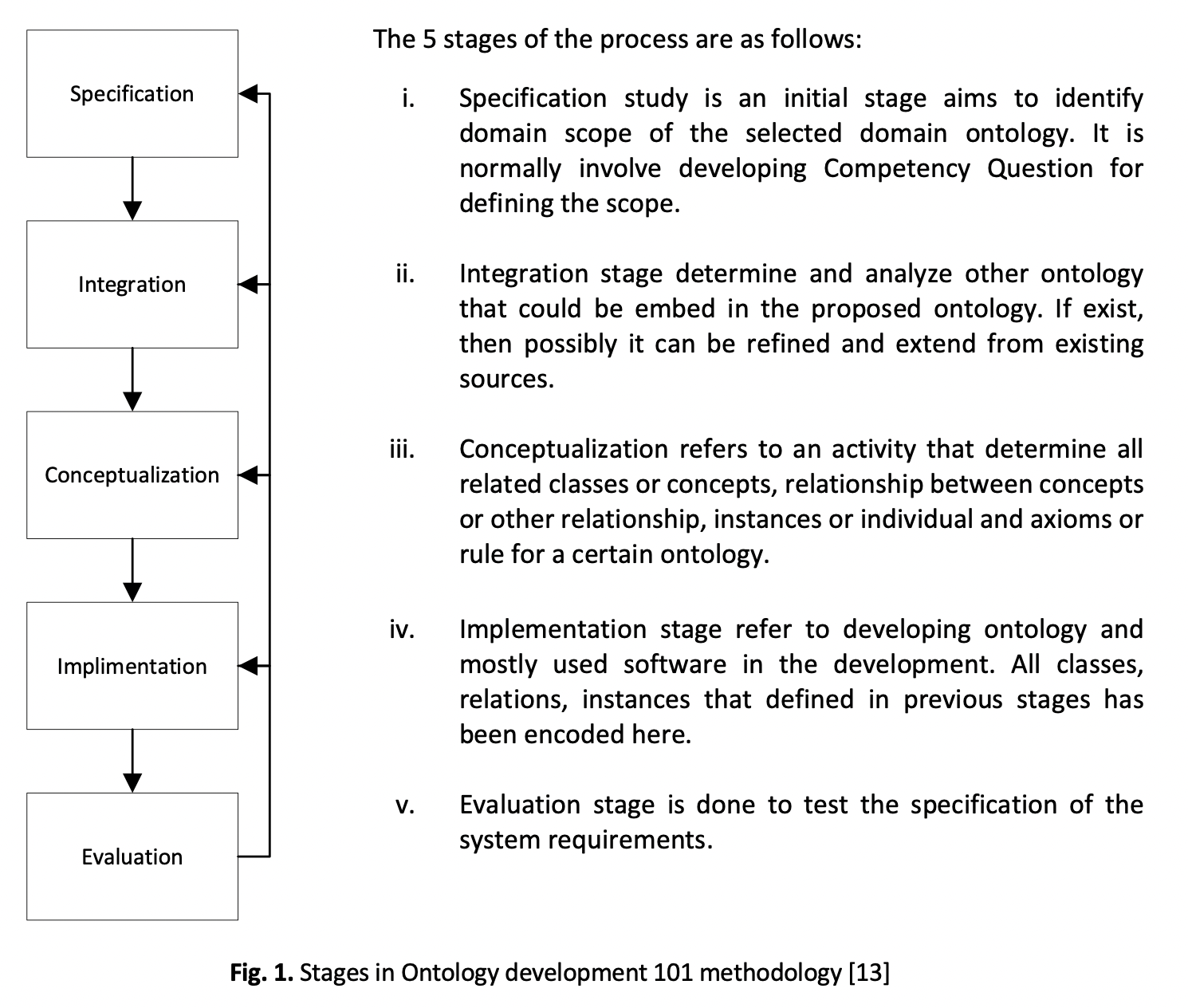Ontology Model for Hajj using Ontology Development 101 Methodology
DOI:
https://doi.org/10.37934/ard.141.1.241256Keywords:
Hajj, ontology development 101, Quran, Islamic domainAbstract
Hajj and Umrah are fundamental spiritual journeys in Islam, requiring proper knowledge and preparation. However, information related to these rituals is scattered across historical texts, religious scriptures, and online sources, making it difficult to access and understand. The challenge of structuring and organizing knowledge is not unique to religious studies but extends to other domains, such as mental health awareness and Islamic thought. With the advancement of technology, particularly artificial intelligence (AI) and ontology-based systems, structured knowledge representation has become increasingly valuable. This study develops a Hajj ontology as a structured knowledge base to systematically organize pilgrimage-related information. The Ontology Development 101 (OD101) methodology was adopted, consisting of specification, integration, conceptualization, implementation, and evaluation phases. The integration phase combined elements from Umrah ontology and Qur’an ontology, ensuring a more comprehensive representation of pilgrimage knowledge. The developed ontology was successfully implemented due to the simplicity and flexibility of the methodology. Protégé was used for visualization, while SPARQL queries enabled knowledge retrieval, addressing competency questions and enhancing accessibility. This structured approach demonstrates the potential of ontology-based models to improve understanding and decision-making in religious studies. Beyond Islamic studies, ontology-based frameworks have broader applications. In mental health research, structuring knowledge on psychological well-being, such as stress, anxiety, and depression, can support more effective awareness strategies. Similarly, in Islamic thought and AI-driven knowledge systems, ontology models help organize and interpret religious teachings, ensuring alignment with Islamic principles. This study highlights how ontology can bridge the gap between fragmented information sources and structured knowledge representation, offering a foundation for further research in religious studies, mental health awareness, and AI-driven knowledge management.
Downloads























